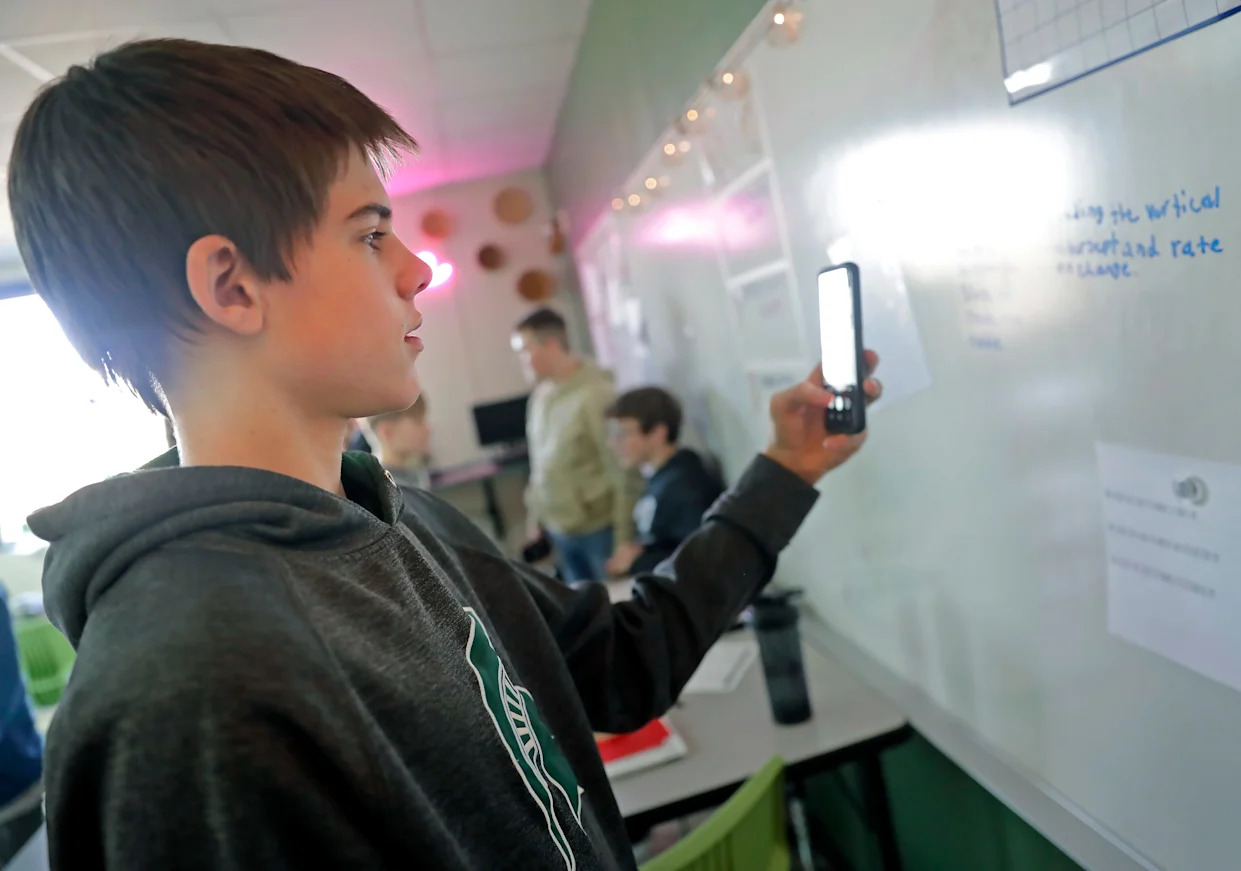Education
Should Schools Ban Cell Phones or Teach Responsible Use?

Debate is intensifying over whether schools should implement a statewide ban on cell phones in classrooms. In an opinion piece published on September 4 by the *Milwaukee Journal Sentinel*, educator Daniel Buck argues that prohibiting phones could improve students’ mental health and academic performance. He highlights the significant challenges educators face in managing smartphone use, particularly the distractions posed by social media.
For over a decade, veteran teacher John Parrish has witnessed firsthand the negative effects of smartphones in the classroom. He contends that the constant influx of curated content from social media hampers students’ ability to concentrate. Parrish supports the call for a ban, emphasizing that it presents an opportunity for meaningful government action to foster a more focused educational environment.
Nevertheless, some critics of the ban suggest that instead of outright prohibition, schools should teach students how to use their devices responsibly. Tim Haering, a resident of Shorewood, argues that rather than preventing access to smartphones, educational institutions could introduce a curriculum focused on safe and effective usage. He cites the analogy of driving education, suggesting that just as students learn to drive safely, they could benefit from a similar program for smartphone use.
The discussion reflects broader concerns about the impact of technology on young people’s lives. With the prevalence of smartphones, many educators and parents are grappling with the question of how to integrate technology into learning while minimizing its potential distractions.
As the debate continues, it is clear that the conversation around cell phone usage in schools is far from settled. Finding a balance between beneficial technology use and maintaining focus in the classroom remains a critical challenge for educators, policymakers, and parents alike.
The outcome of this discussion could shape the future of educational policies in Wisconsin and potentially influence approaches in other regions. The call for responsible smartphone education might emerge as a compelling alternative to outright bans, reflecting a nuanced understanding of technology’s role in students’ lives.
-

 Technology5 months ago
Technology5 months agoDiscover the Top 10 Calorie Counting Apps of 2025
-

 Health3 months ago
Health3 months agoBella Hadid Shares Health Update After Treatment for Lyme Disease
-

 Health3 months ago
Health3 months agoErin Bates Shares Recovery Update Following Sepsis Complications
-

 Technology4 months ago
Technology4 months agoDiscover How to Reverse Image Search Using ChatGPT Effortlessly
-

 Technology1 month ago
Technology1 month agoDiscover 2025’s Top GPUs for Exceptional 4K Gaming Performance
-

 Technology3 months ago
Technology3 months agoElectric Moto Influencer Surronster Arrested in Tijuana
-

 Technology5 months ago
Technology5 months agoMeta Initiates $60B AI Data Center Expansion, Starting in Ohio
-

 Technology5 months ago
Technology5 months agoRecovering a Suspended TikTok Account: A Step-by-Step Guide
-

 Health4 months ago
Health4 months agoTested: Rab Firewall Mountain Jacket Survives Harsh Conditions
-

 Lifestyle5 months ago
Lifestyle5 months agoBelton Family Reunites After Daughter Survives Hill Country Floods
-

 Health3 months ago
Health3 months agoAnalysts Project Stronger Growth for Apple’s iPhone 17 Lineup
-

 Technology4 months ago
Technology4 months agoHarmonic Launches AI Chatbot App to Transform Mathematical Reasoning









